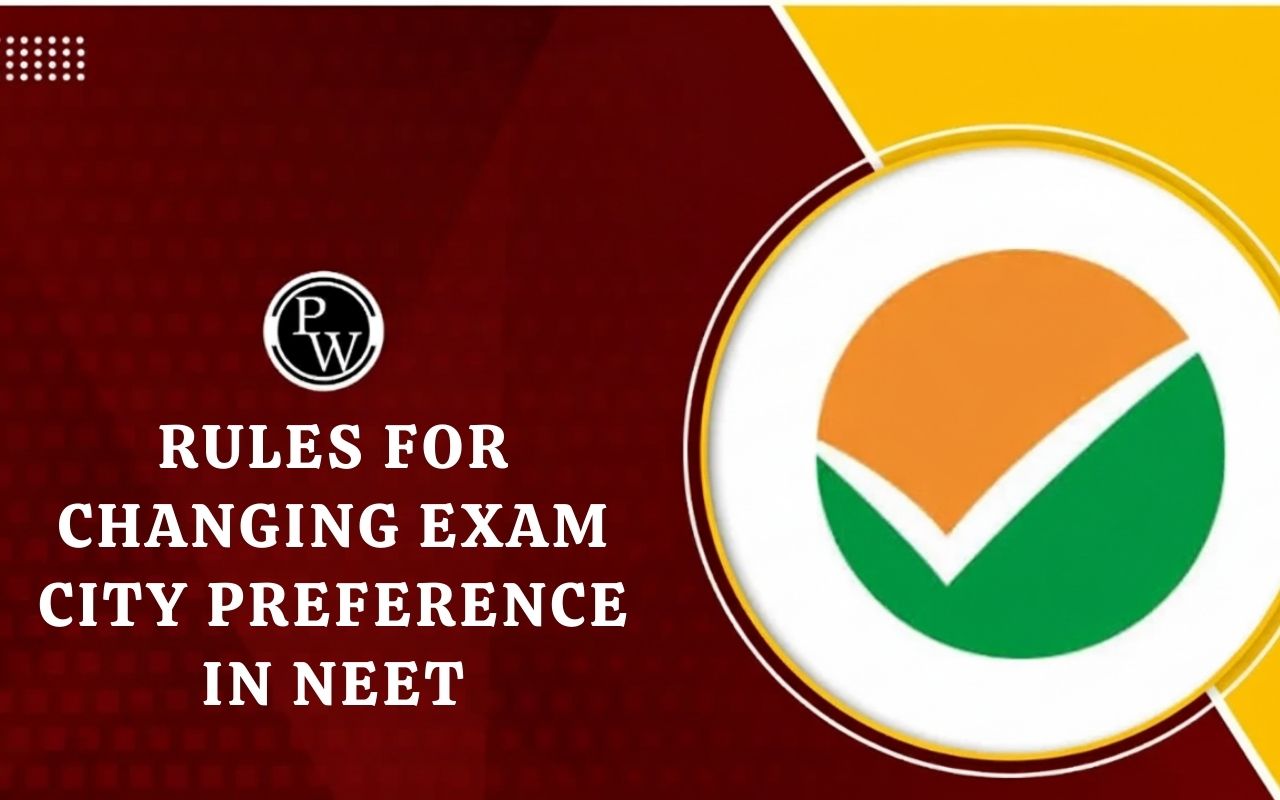
AYUSH Full Form: AYUSH is concerned with the education and advancement of alternative medicine. The Department of Indian Medicines and Homoeopathy (ISM&H) was established in the Union Ministry of Health and Family Welfare in 1995 to develop these systems.
This department changed its name to the Department of AYUSH in 2003. The ministry of AYUSH representatives for a healthy lifestyle, supports the idea of disease prevention and adheres to the principle of natural healing. This ministry represents the Indian System of Medicine.AYUSH Full Form in Medical
AYUSH Full Form in Medical is Ayurveda, Yoga, Unani, Siddha, and Homeopathy. These diverse systems of medicine offer unique approaches to healthcare. Through natural medicines and dietary changes, Ayurveda emphasizes total well-being and harmony. Yoga includes physical poses, breathing exercises, and meditation to improve physical and mental health. Unani emphasizes using herbal treatments and medications to balance the body's humor. The equilibrium of the five elements is essential to Siddha's wellness. According to the "like cures like" principle, homeopathy uses diluted chemicals to promote the body's natural healing process. These systems are covered by AYUSH, which also offers complementary medical treatments and encourages their incorporation into contemporary medical procedures.AYUSH Full Form in English
The AYUSH Full Form in English is Ayurveda, Yoga, Naturopathy, Unani, Siddha, and Homoeopathy. The development, promotion, and regulation of conventional and complementary medical practices, such as Ayurveda, Yoga, Naturopathy, Unani, Siddha, and Homoeopathy, are the responsibility of an AYUSH. The AYUSH department in India works towards promoting and regulating these traditional systems of medicine, conducting research, setting standards, and ensuring quality control. It plays a significant role in integrating traditional and alternative medicine with modern healthcare practices.AYUSH Full Form in Hindi
AYUSH Full Form हिंदी में आयुर्वेद, योग, प्राकृतिक चिकित्सा, यूनानी, सिद्ध और होम्योपैथी है। यह एक भारतीय सरकारी एजेंसी है जो आयुर्वेद, योग, प्राकृतिक चिकित्सा, यूनानी, सिद्ध और होम्योपैथी जैसी पारंपरिक और वैकल्पिक चिकित्सा प्रणालियों के विकास, प्रचार और विनियमन के लिए जिम्मेदार है। भारत में आयुष विभाग अनुसंधान, मानकों को परिभाषित करने और गुणवत्ता नियंत्रण बनाए रखकर इन पारंपरिक चिकित्सा प्रणालियों को बढ़ावा देता है और नियंत्रित करता है। वर्तमान स्वास्थ्य देखभाल प्रथाओं के साथ पारंपरिक और वैकल्पिक चिकित्सा को एकीकृत करना महत्वपूर्ण है।Objectives of AYUSH
The goals and duties of the Full Form of AYUSH include:- To encourage the Siddha System of Medicine's global adoption
- Give universal access by upgrading AYUSH Hospitals and Dispensaries while promoting AYUSH Medical Systems through cost-effective services.
- to promote the study of diverse Siddha Medicine topics
- To make various amenities more usable
Branches of AYUSH
The following branches collectively form the foundation of AYUSH , each with its unique principles and methodologies for promoting health and well-being.Ayurveda
Ayurveda, a key component of AYUSH Full Form , is known as the "Knowledge of Life and Longevity." It was developed during the Vedic period and used a holistic herbal approach to healing. Ayurvedic medicine has been practiced for 5,000 years and has attracted worldwide interest. Ayurveda is highly valued in medical research and is thought to have been passed down from divine entities to humans. The Sushruta Samhita and Charaka are the foundational texts of Ayurveda. Within Ayurveda, there are eight components or specialties known as Kaya Chikitsa, Kaumara Bhritya, Rasayana Tantra, Shalakya Tantra, Shalya Tantra, Agada Tantra, Bhuta Vidya, and Vajikarana Tantra. Ayurvedic practitioners must maintain good mental, bodily, and spiritual health. They believe achieving moral values, prosperity, pleasure, and liberation (Dharma, Artha, Kama, and Moksha) is only possible with well-rounded well-being. AYUSH encompasses these traditional healing practices and aims to promote their education, development, and integration into modern healthcare systems.Yoga
AYUSH , which encompasses yoga as one of its components, recognizes the significant impact of yoga on an individual's physical, mental, and spiritual well-being. Yoga has been preached primarily by Jain, Buddhist, and Hindu saints and is practiced through meditation and exercise. It offers an effective means of maintaining bodily health without relying on medications or antibiotics. Yoga is considered a form of complementary medicine that harnesses the natural forces within the body to promote healing. Its basic premise is based on the five natural elements: Earth, Water, Fire, Air, and Ether. Acupuncture, physiotherapy, mud treatment, fasting therapy, hydrotherapy, and yoga are accessible under AYUSH therapies. Yoga has grown in popularity worldwide, and it is now recognised as one of the most effective ways to cope with sadness and grief, as well as an essential component of a healthy lifestyle. Yoga is advocated and supported as an AYUSH component for improving holistic well-being.Unani
The traditional system of medicine you refer to is Unani Medicine, which has historical roots in the Mughal era and is still practiced in many Muslim countries across South Asia today. This system of medicine has been influenced by Persian-Arabic teachings and incorporates knowledge from Greek physicians such as Hippocrates and Galen. Unani Medicine is based on the concept of four elements: dam (blood), balgham (phlegm), Sauda (black bile), and Safra (yellow bile). Practitioners of Unani Medicine believe that the effective treatment of any illness depends entirely on accurately diagnosing the specific disease. While Unani Medicine is a distinct system of traditional medicine, it is worth mentioning that it is one of the components of AYUSH. Ayurveda, Yoga, Naturopathy, Unani, Siddha, and Homoeopathy are examples of traditional and alternative medical systems covered by AYUSH. These systems collectively promote holistic health and well-being within the AYUSH framework.Siddha
Siddha Medicine, widely practiced in South India, is a holistic medical system that focuses on healing the body, mind, and soul. Derived from the Tamil word "Siddhi," meaning "perfection," Siddha Medicine is rooted in the teachings of Siddhars, spiritual teachers known for their extraordinary powers. Recognized under the Ministry of AYUSH in India, Siddha Medicine emphasizes the rejuvenation of disease-causing organs and highlights the importance of lifestyle in healing. Practitioners utilize herbal medicines, minerals, and exercises to restore balance and promote well-being. With a rich history and widespread practice, Siddha Medicine plays a significant role in South Indian healthcare.Homeopathy
Homeopathy is a medical system based on the idea that the body can heal itself. It is intended to boost and improve the body's natural healing mechanisms. Homeopathy was developed in the late 18th century by a German physician named Samuel Hahnemann. As part of the Indian healthcare system, homeopathy is recognized and promoted by the Ministry of AYUSH (Ayurveda, Yoga & Naturopathy, Unani, Siddha, and Homeopathy). Homeopathy is based on the principle of "like cures like," which argues that the substance that causes symptoms in a healthy person may treat identical symptoms in a sick person, strengthening the body's defence mechanisms. The objective is to identify a treatment that matches the individual's entire set of symptoms. Homeopathy is practiced worldwide and is an integral part of the AYUSH system in India, alongside other traditional systems of medicine. Its approach to healing and emphasis on individualization align with the holistic principles promoted by the AYUSH ministry.Ministry of AYUSH Institutions
The Ministry of AYUSH in India oversees several institutes all around the country. The essential Institutions under the Ministry of AYUSH are given in the table.| Institutions under the Ministry of AYUSH |
|---|
|
Preventive Aspects of AYUSH
The preventive aspects of AYUSH focus on promoting a healthy lifestyle and intervening early to control and manage chronic diseases. Here are some of the main Preventive aspects of AYUSH:- AYUSH focuses on preventive healthcare to combat modern sedentary lifestyles and environmental stress.
- AYUSH aims to prevent diseases and improve the overall quality of life.
- It identifies subclinical stages of chronic diseases like hypertension, hyperglycemia, and kidney disease.
- Early interventions are implemented to control and manage these conditions before they progress.
- AYUSH helps individuals understand the difference between health and disease.
- Ayurveda provides personalized approaches through diet, lifestyle modifications, and herbal remedies.
- Yoga and Naturopathy promote physical exercise, breathing techniques, and natural therapies for well-being.
- Unani medicine emphasizes dietary regulation, herbal medicines, and lifestyle management.
- Siddha medicine takes a holistic approach, considering body, mind, and soul.
- Homoeopathy stimulates self-healing abilities through diluted remedies.
- AYUSH empowers individuals with awareness, education, and preventive measures.
- By adopting these approaches, individuals can lead healthier lives and minimize the risk of chronic ailments.
- The AYUSH department is vital in promoting and facilitating preventive healthcare.
Check NEET Exam Important Links
| NEET Exam Important Links | |
| NEET Syllabus | NEET Sample Paper |
| NEET Notes | NEET Previous Year Question papers |
AYUSH Full Form FAQs
What is the AYUSH Full Form?
The AYUSH Full Form is Ayurveda, Yoga, Unani, Naturopathy, Siddha, and Homoeopathy.
Are AYUSH practitioners beneficial in healthcare?
Since AYUSH practitioners are renowned and valued for promoting a holistic approach to health, they are crucial to the Indian healthcare system.
What is the AYUSH philosophy?
Based on balance, the four touches of humor- phlegm, blood, black bile, and yellow bile must be balanced to be healthy.
How many AYUSH medical professionals work in India?
By state, the number of AYUSH practitioners at PHCs in rural India in 2022 was over 8,000. As of 2022, primary health centers (PHCs) in India employed AYUSH medical professionals.
What are the four fundamentals of the human body?
According to Ayurveda, the four essential components of the human body are the dosha, dhatu, mala, and agni. These essential characteristics of the human body are significant in Ayurveda. These are also known as the "Mool Siddhant" or "basic Ayurvedic principles."
🔥 Trending Blogs
Talk to a counsellorHave doubts? Our support team will be happy to assist you!

Check out these Related Articles
Free Learning Resources
PW Books
Notes (Class 10-12)
PW Study Materials
Notes (Class 6-9)
Ncert Solutions
Govt Exams
Class 6th to 12th Online Courses
Govt Job Exams Courses
UPSC Coaching
Defence Exam Coaching
Gate Exam Coaching
Other Exams
Know about Physics Wallah
Physics Wallah is an Indian edtech platform that provides accessible & comprehensive learning experiences to students from Class 6th to postgraduate level. We also provide extensive NCERT solutions, sample paper, NEET, JEE Mains, BITSAT previous year papers & more such resources to students. Physics Wallah also caters to over 3.5 million registered students and over 78 lakh+ Youtube subscribers with 4.8 rating on its app.
We Stand Out because
We provide students with intensive courses with India’s qualified & experienced faculties & mentors. PW strives to make the learning experience comprehensive and accessible for students of all sections of society. We believe in empowering every single student who couldn't dream of a good career in engineering and medical field earlier.
Our Key Focus Areas
Physics Wallah's main focus is to make the learning experience as economical as possible for all students. With our affordable courses like Lakshya, Udaan and Arjuna and many others, we have been able to provide a platform for lakhs of aspirants. From providing Chemistry, Maths, Physics formula to giving e-books of eminent authors like RD Sharma, RS Aggarwal and Lakhmir Singh, PW focuses on every single student's need for preparation.
What Makes Us Different
Physics Wallah strives to develop a comprehensive pedagogical structure for students, where they get a state-of-the-art learning experience with study material and resources. Apart from catering students preparing for JEE Mains and NEET, PW also provides study material for each state board like Uttar Pradesh, Bihar, and others
Copyright © 2026 Physicswallah Limited All rights reserved.









